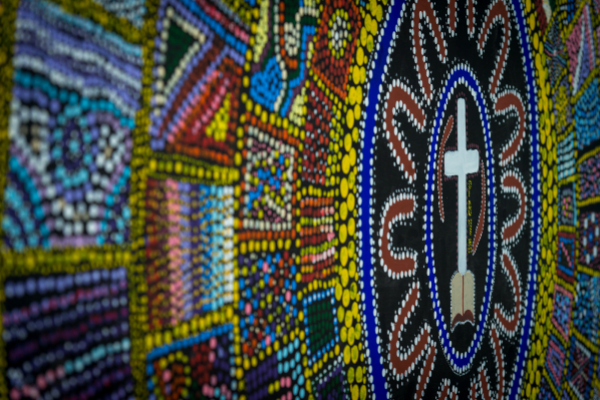From the NESA Framework:
‘NSW syllabuses provide context within which to develop core skills, knowledge and understanding considered important for the acquisition of effective, higher-order thinking skills that underpin successful participation in further education, work and everyday life, including problem-solving, collaboration, self-management, communication and information technology skills.
Learning across the curriculum content including the cross-curriculum priorities and general capabilities, assists students achieve the broad learning outcomes defined in the NESA Statement of Equity Principles, the Melbourne Declaration on Educational Goals for Young Australians (December 2008) and in the Australian Government’s Core Skills for Work Developmental Framework (2013).
Cross-curriculum priorities enable students to develop understanding about and address the contemporary issues they face.
Please refer to the list below for more information on each of the Cross Curriculum Priorities.

Sustainability
Sustainability addresses the ongoing capacity of Earth to maintain all life. It provides authentic contexts for exploring, investigating and understanding systems in the natural and made environments.
Education for sustainability in RE can develop knowledge, skills, values and worldviews necessary for people to act in ways that contribute to more sustainable patterns of living. It enables individuals and communities to reflect on ways of interpreting and engaging with the world.
The Religious Education Curriculum K-10 supports learning in the area of Sustainability mainly through specific units in the RE Curriculum strand ‘Creation’. These units build foundations in ES1 and Stage 1 and are developed in a specific unit in Stages 2-5. These units are especially suited to integration with both Science and History (HSIE). Diversity, interdependence and interactions with each other and the environment are a focus in RE Creation units. Christian values, Church teaching and social justice are explored in relation to sustainability.
Aboriginal and Torres Strait Islander histories and cultures
Across the Australian Curriculum, the Aboriginal and Torres Strait Islander histories and cultures priority provides opportunities for all learners to deepen their knowledge of Australia by engaging with the world’s oldest continuous living cultures. Students will understand that contemporary Aboriginal and Torres Strait Islander Communities are strong, resilient, rich and diverse. The knowledge and understanding gained through this priority will enhance the ability of all young people to participate positively in the ongoing development of Australia. (Australian Curriculum)
In Religious Education, students will explore concepts of identity, reconciliation, healing, community, dignity of the human person, love and service in order to deepen their knowledge and understanding of Aboriginal and Torres Strait Islander histories and cultures. The RE curriculum celebrates the contributions, beliefs and values of the
Aboriginal and Torres Strait Islander histories and cultures, both past and present, and the importance of understanding their histories and contributions to Australian culture and identity.
In Religious Education students also have the opportunity to reflect upon the theme of Reconciliation. This theme underpins the whole RE Curriculum as well as being specifically taught throughout the units in 2.6 Reconciliation, 4.2 Penance and D10 Sacraments of Healing.
The Creation units enable the students to reflect upon and make links to Aboriginal Spirituality. Students will recognise the importance of our environment and the relationships we have with those around us in order to continue the mission of Jesus. Students will develop knowledge and understanding of Aboriginal and Torres Strait Islander history and culture in Australia as they explore the Reign of God units and focus on those marginalised in society.
Asia and Australia’s engagement with Asia
The Asia and Australia’s engagement with Asia priority reflects the social, cultural, political and economic spheres in a regional context. Australian students need an understanding of Asia to be active and informed citizens building diverse communities living together for the prosperity of Australia. They will learn about the similarities and diversity among the Asian societies and cultures, beliefs and environments and their connections with Australia and the world.
In Religious Education, students explore the themes of loving relationships, Christian values including respect for the dignity of human beings, which is the basis of Catholic Social Teaching. The RE curriculum celebrates diversity in certain forms and encourages the freedom to express this, especially in Liturgy and when relating content to their own personal lives. When learning scripture stories and the history of the Church, students are made aware that the Catholic Church is influenced by migration, intermarriage and inclusivity. Religious Education experiences build awareness in students of others and their relationship with them. They encourage empathy, solidarity and compassion. The similarities of groups of people are celebrated alongside the differences that make them unique and thus children of the creator.
There are many implications for action such as fundraising and social outreach.
